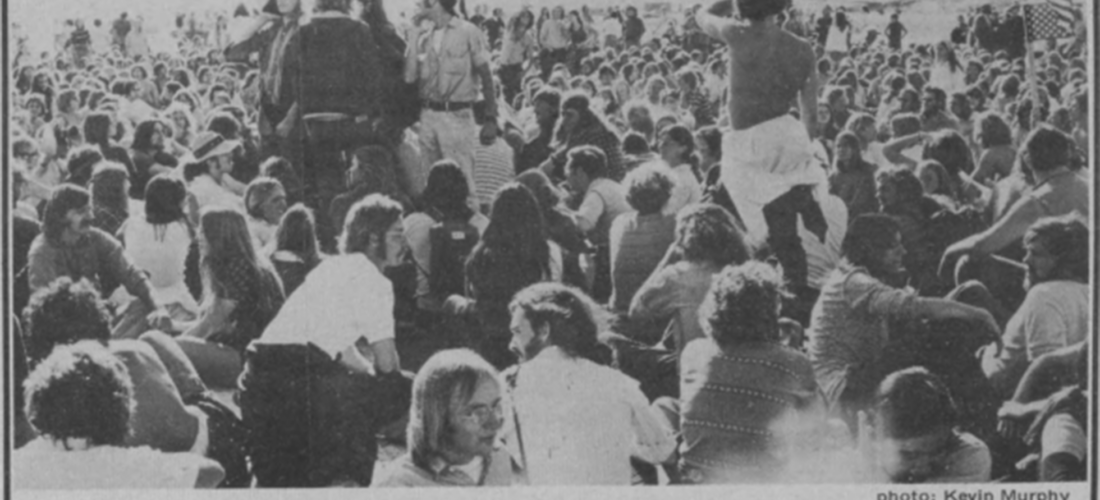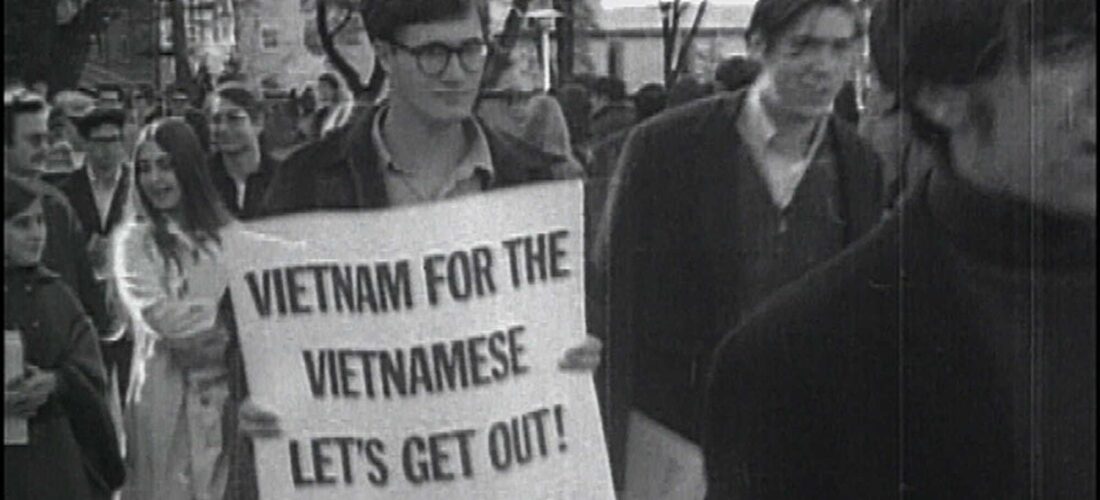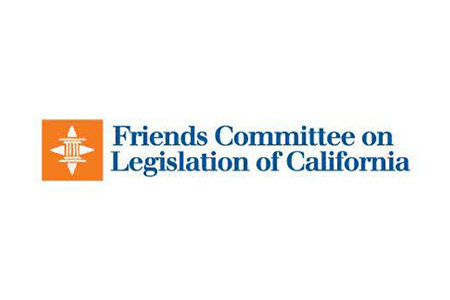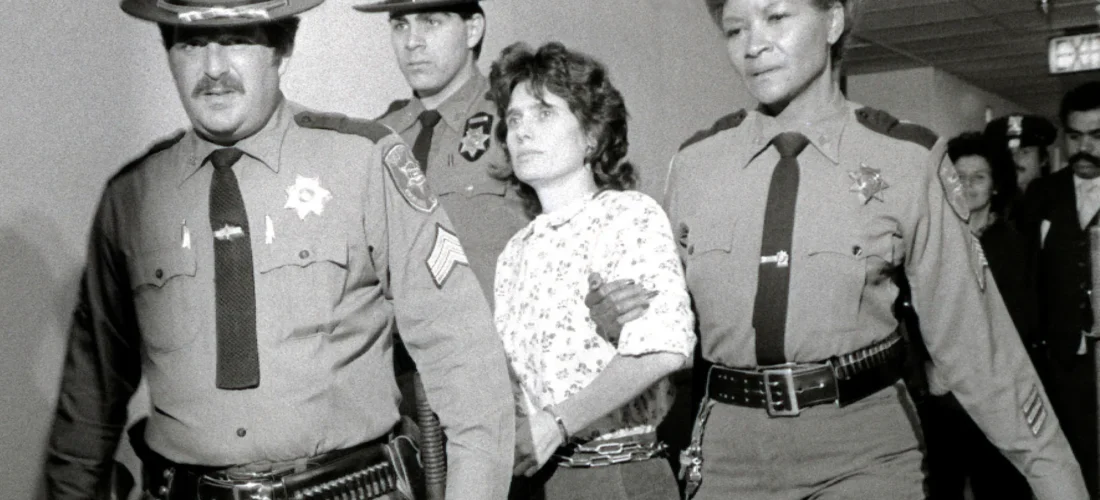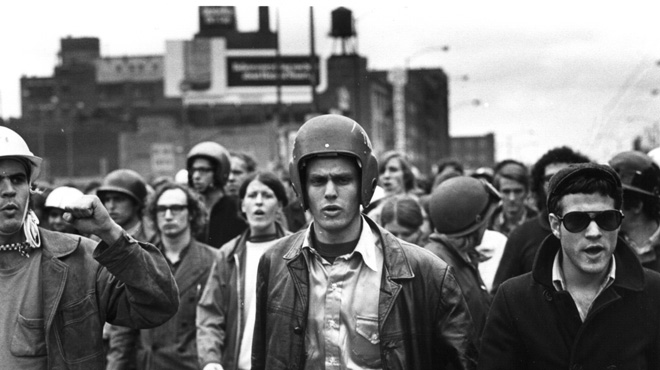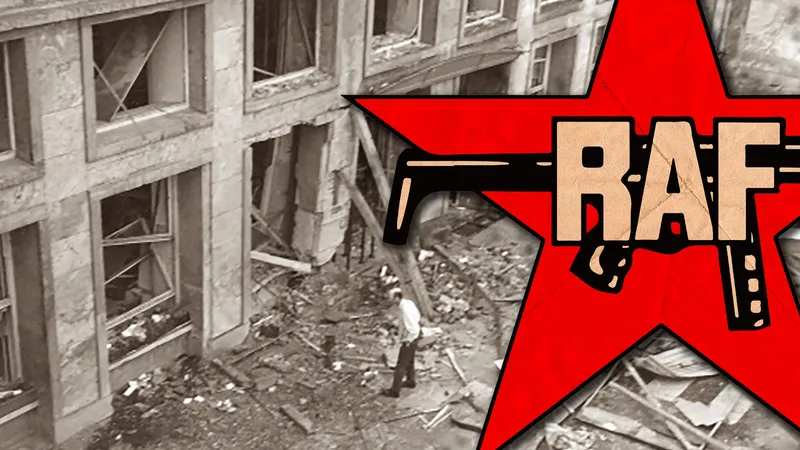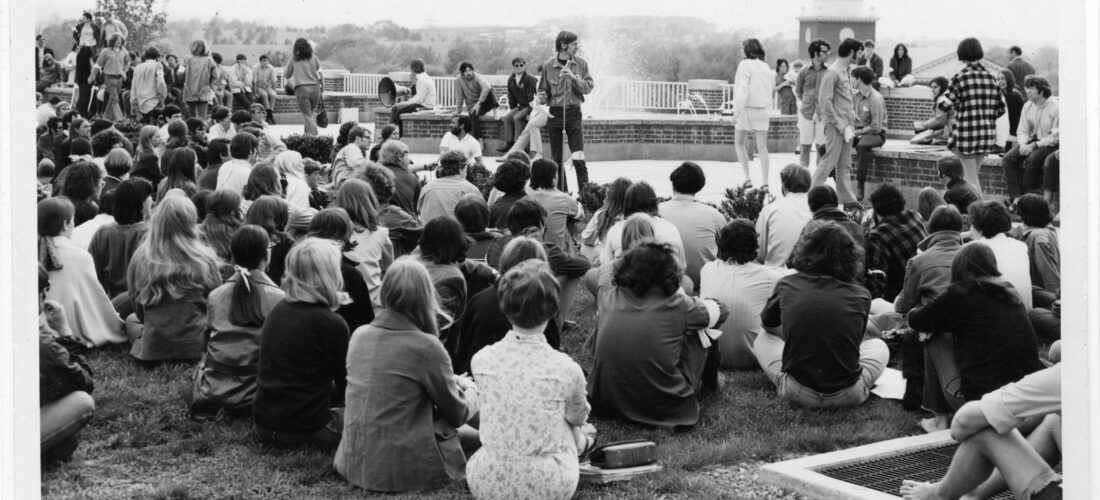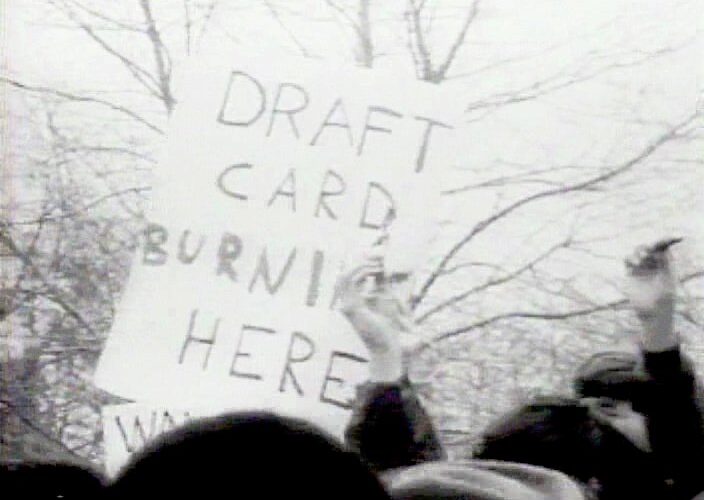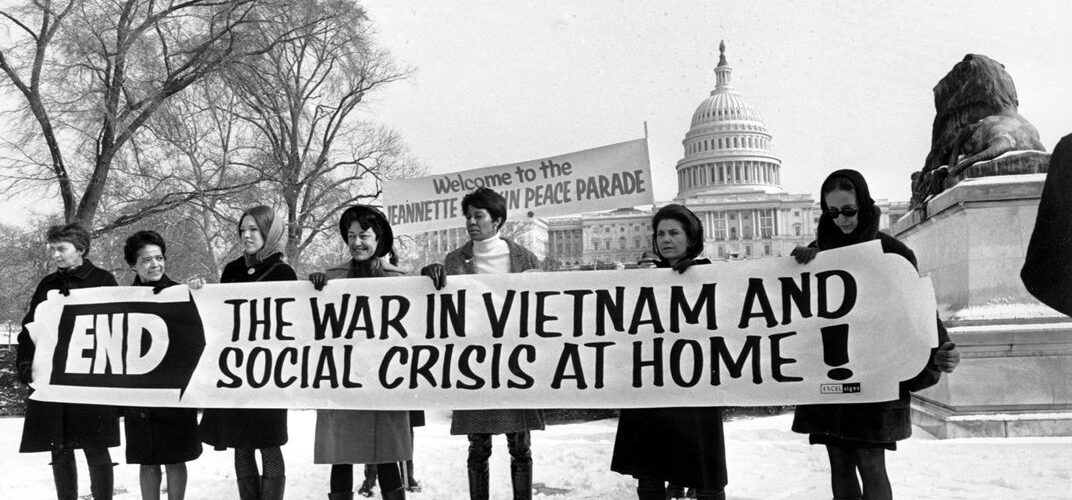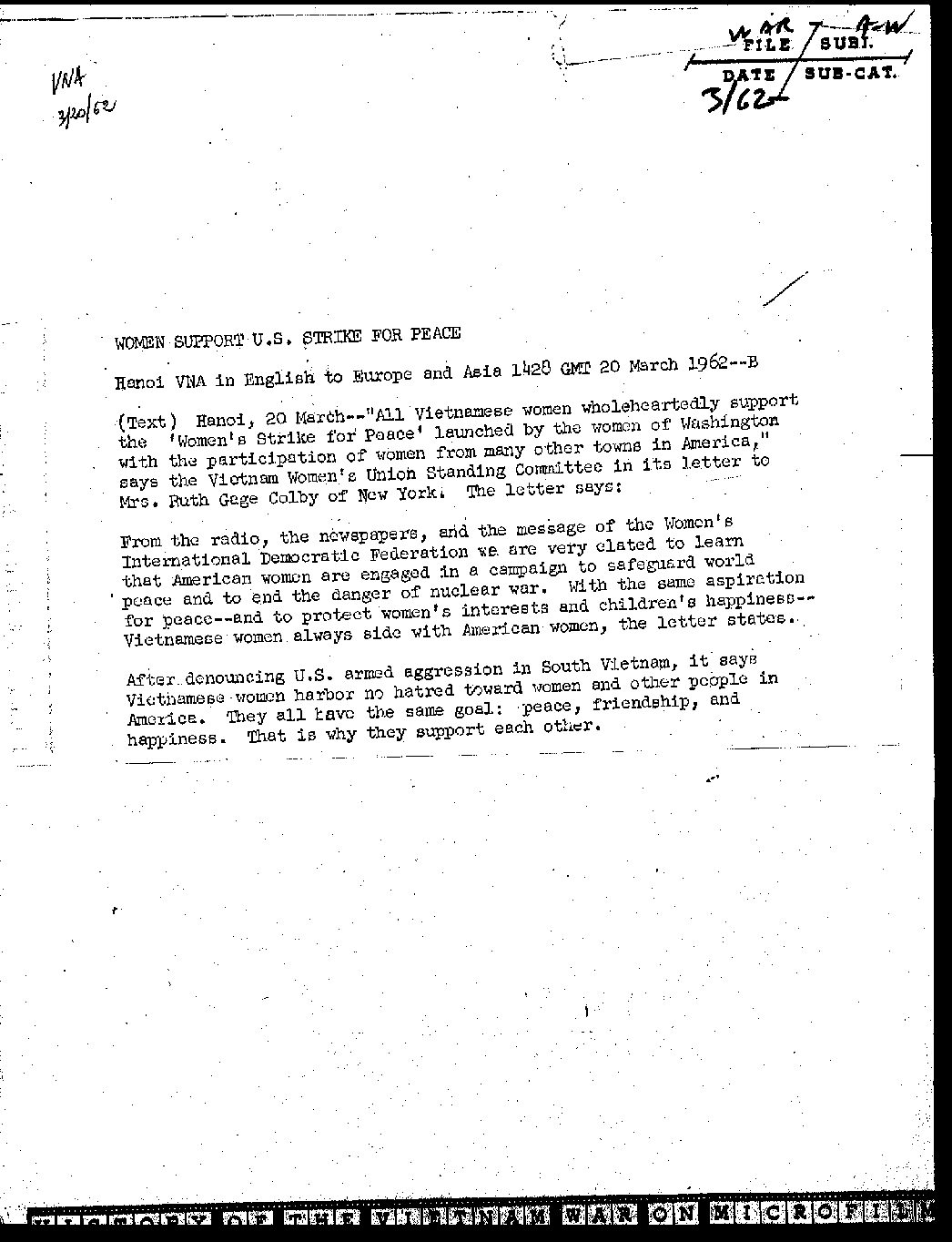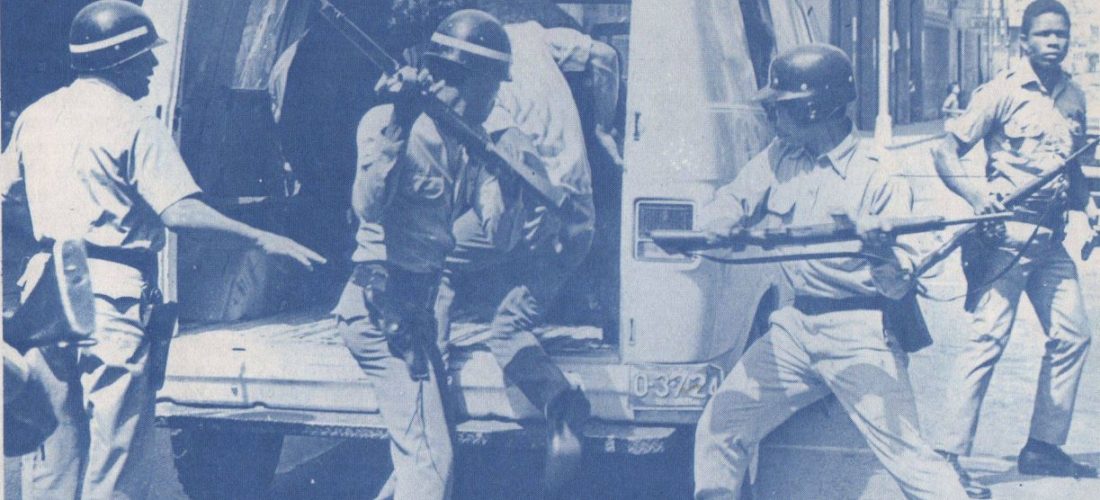Rallies in San Francisco at the Civic Center and Kezar Stadium were organized after the confirmed bombings of the two most populated cities in Northern Vietnam.
vietnam war
We Demand – Vietnam War
1946-1989, Authority, Consciousness Raising, Date, Defining the Enemy, Disruptive Spaces, Institutions, Students, Subjectives of Refusal, Tactics of DisruptionStudents demand the US Government end the systemic oppression of political dissidents and release all political prisoners, stop the escalation, end the war in Vietnam, and withdraw forces from Southeast Asia.
Stop The Terrible War! – Vietnam War
1946-1989, Consciousness Raising, Strike, Tactics of DisruptionThe nonprofit organization Friends Committee on Legislation of California posted this flyer in 1972 to gather supporters and activists to end the war in Vietnam. It calls on citizens to contact their representatives to stop funding and to support those who want to end the war.
Outlaws of Amerika – Vietnam War
1946-1989, Defining the Enemy, Imperialism, Sabotage/Ecotage, Subjectives of Refusal, Tactics of Disruption, WomenThe Weather Underground group discusses the bombing at Harvard’s Center for International Affairs in October 1970 in this communique
Outlaws of Amerika
The Weather Underground strongly opposed the Vietnam War, seeing it as a form of U.S. imperialism. They believed that traditional protests, like marches and sit-ins, weren’t enough to stop the war, so they turned to more extreme measures. Instead of just speaking out, they took direct action, attacking institutions they felt were fueling the war, such as Harvard’s Center for International Affairs. They also supported Vietnam and saw their fight as part of a bigger movement against oppression worldwide. Rejecting nonviolence, they encouraged sabotage and attacks on government buildings to disrupt the war effort. Their approach marked a shift from peaceful demonstrations to active resistance, believing that real change required revolution within the U.S. itself.
Prairie Fire: The Politics of Revolutionary Anti-Imperialism – Vietnam War
1946-1989, Consciousness Raising, Defining the Enemy, Disruptive Spaces, Imperialism, Institutions, Tactics of DisruptionThe Weather Underground Organization analyzes the significance of the Vietnamese victory over U.S. imperialism
The Weather Underground
The Weather Underground was a radical left-wing group active in the United States from 1969 to 1977. Emerging from the anti-Vietnam War and civil rights movements, it was founded by members of the Students for a Democratic Society who believed that more aggressive actions were necessary to combat U.S. imperialism. The group aimed to overthrow the U.S. government, which they viewed as oppressive and imperialistic. To protest the Vietnam War and other social injustices, the Weather Underground carried out a series of bombings targeting government buildings and banks, as well as creating this manifesto that marked a large defeat for U.S. imperialism
The Red Army Faction – Vietnam
1946-1989, Date, Disruptive Spaces, Institutions, Sabotage/Ecotage, Students, Subjectives of Refusal, Tactics of DisruptionThis reference aid about the Red Army Faction discusses the leftist extremist group as an ongoing threat during the Vietnam War.
Red Army Faction
During the Vietnam War, the Red Army Faction formed in West Germany as part of the radical student movement. The group opposed American involvement in Vietnam and saw the U.S. and NATO as imperialist forces controlling West Germany. They were inspired by Vietnam guerrilla tactics so the RAF believed in using violence to fight capitalism and Western influence. They carried out attacks on U.S. military bases in West Germany and built connections with Palestinian militant groups and East German intelligence. The war strengthened their belief that armed struggle was necessary to overthrow oppressive governments.
“The only thing that counts is the struggle—now, today, tomorrow… to lose again, to fight once more and on and on until final victory—that is the logic of the people.”
Bucknell University Protests Recruitment During Vietnam War
1946-1989, Authority, Date, Defining the Enemy, Disruptive Spaces, Institutions, Students, Subjectives of RefusalDuring the Vietnam War, Bucknell University began protesting against military recruitment, especially about the U.S. Marines and Navy, during the Vietnam War
Protesting Recruitment
In the 1970s, Bucknell University had protests against military recruiters, especially the Marines and Navy, coming to campus. Students, faculty, and staff did not like it because they saw it as supporting the Vietnam War and the draft which was extremely unpopular during the time. These protests were part of the bigger anti-war movement, where students started questioning the military’s place on campus and in society. The demonstrations at Bucknell were part of a larger shift in the U.S. where people began challenging the military’s influence on education.
Bucknell University Declares Moratorium – 1970
1946-1989, Date, Disruptive Spaces, Institutions, Strike, Students, Subjectives of Refusal, Tactics of DisruptionBucknell University declared a moratorium on classes where students and faculty joined together to defy the war going on in Vietnam
May 5, 1970
This particular moratorium on classes was a response to the events that happened at Kent State University on May 4, 1970, where the Ohio National Guard opened fire on unarmed student protesters killing four students and injuring nine others. This event sparked an increase in protests around the nation on college campuses. In response to these protests, Bucknell’s administration decided to suspend classes to allow students and faculty the time to discuss the protests related to the war and the political climate of the time.
Defy The Draft – 1967
1946-1989, Authority, Defining the Enemy, Strike, Students, Subjectives of Refusal, Tactics of Disruption, UncategorizedStudents join protesters in New York to show off their right to have freedom of speech by defying the Vietnam draft with the burning of draft cards
“One hundred American youths burned their draft cards in Central Park today in a protest against the war in Vietnam”
On Pilgrimage – Dorothy Day Against the Vietnam War
1946-1989, Consciousness Raising, Date, Tactics of DisruptionDorothy Day expresses her sorrow and outrage against the Vietnam War and calls to Christians and Catholics to band together against it
Dorothy Day
Dorothy Day was an American Catholic activist, writer, and co-founder of the Catholic Worker Movement. Her life was defined by her dedication to following the principles of the Sermon on the Mount, embracing radical hospitality, advocating for pacifism, and fighting for peace and social justice. Dorothy Day was strongly against the Vietnam War, criticizing it both morally and religiously. As a dedicated pacifist and Catholic, she believed the war was a serious injustice that went against the teachings of Christ. She saw the war as an example of imperialism and violence, which conflicted with her values of peace, justice, and helping the poor.
Story of The Last Great Gunfighters – Vietnam War
1946-1989, Date, Disruptive Spaces, The HomeThe following excerpt follows what a Vietnam War veteran, Joseph M. Belardo Sr., went through after his return to the United States after his tour
Joseph M. Belardo Sr.
Joseph M. Belardo Sr. is a Vietnam War veteran who served in the U.S. Army. After his tour in Vietnam, Belardo dedicated much of his life to public service and advocating for fellow veterans. He became an active member of the American Legion and worked with various veteran organizations to support veterans’ rights and welfare. Additionally, Belardo contributed to the community by helping to establish veterans’ memorials and supporting efforts to ensure that the sacrifices of Vietnam War veterans were acknowledged and honored. However, he was faced with issues as many citizens believed he was a “murderer” after his return, with an uprise of protests happening as he returned. He felt hurt by this opposition from his own country as he was drafted into the military.
The Ally – Vietnam War Newspaper 1968
1946-1989, Consciousness Raising, Date, Disruptive Spaces, Tactics of Disruption, The HomeThe Ally, a newspaper directed toward the social, political, and humanitarian impacts of the war, provides an interview of a soldier and his interactions while in Vietnam
The Ally Newspaper
The “Ally” newspaper, Issue No. 3 (April 1968), was a publication produced by the Vietnam Solidarity Campaign (VSC) in the United Kingdom. The VSC was one of the most notable activist organizations advocating against the Vietnam War and played a key role in organizing protests. This interview was taken by a correspondent of a foreign newspaper and translated by “The Ally” where the soldier provides his feelings and what he witnessed during and after the war.
“I would say that the real split occurred after May of this year when we were in the U.S. and I saw the demonstrations, massive uprisings of protest against the Vietnamese War”
Freedom of Information and Privacy Acts – Vietnam War
1946-1989, Authority, Black, Date, Defining the Enemy, Students, Subjectives of RefusalBlack activists and students across the United States have utilized their radical groups to protest the Vietnam War
Black “extremist” groups advocating against the Vietnam War
During the 1960s and 1970s, the Vietnam War was a major source of division in American society. The U.S. government’s escalating involvement in Vietnam was widely debated, and many political movements including the Black Power and civil rights movements began to protest the war. The FBI’s COINTELPRO was intended to monitor and disrupt movements that were protesting against the U.S. government. Black civil rights leaders and activists, especially Martin Luther King Jr. and Malcolm X, were outspoken against the war and were targeted under COINTELPRO to control any form of activism against the Vietnam War.
“A time comes when silence is betrayal. That time has come for us in relation to Vietnam.” – Martin Luther King Jr.
Women’s Strike for Peace – Vietnam War
1946-1989, Date, Strike, Subjectives of Refusal, Tactics of Disruption, WomenThe Women’s Strike for Peace, founded in 1961, was a grassroots movement of women advocating to end the Vietnam War and nuclear disarmament.
Women’s Strike for Peace
The Women’s Strike for Peace (WSP) was a prominent movement that mobilized women across the United States to protest the Vietnam War and advocate for disarmament. The group was formed in response to the U.S. government’s involvement in Vietnam and its nuclear weapons testing. WSP organized large demonstrations, including a notable national strike in 1961, and lobbied government officials to adopt peaceful foreign policies. The organization played a key role in shifting public opinion about the war and contributed to broader peace and civil rights movements, highlighting women’s voices in political activism.
“They all have the same goal: peace, friendship, and happiness. That is why they support each other” – Hanoi
Vietnam War or McNamara’s War? – 1964
1946-1989, Consciousness Raising, Date, Strike, Tactics of DisruptionMcNamara’s War, referring to Robert McNamara’s Vietnam War policies, was the escalation of American troops in Vietnam.
“I should like to know what the Foreign Ministers propose to do about bringing to an end the unjustifiable killing that is going on in South Vietnam.” – New York TimesMcNamaras War
Robert McNamara was the Secretary of Defense under President Lyndon Johnson and continuously urged the president to escalate the United States’ involvement in the war through technology. This led to widespread protest against the “McNamara War” as McNamara utilized harsh policies, like the “body count,” which were portrayed as unjust, even in a war. This led to widespread protests about the inhumane policies that were enacted during the Vietnam War.
A Call to Resist Illegitimate Authority (1967) by RESIST
1946-1989, Authority, Date, Defining the Enemy, Disruptive Spaces, Imperialism, InstitutionsThis document was written by the group RESIST, which was a collective group formed in response to the growing unrest in the US surrounding the Vietnam War. It was disseminated by Marcus Raskin, Dr. Benjamin Spock, William Sloane Coffin, Mitchell Goodman, and Michael Ferber who were later charged with conspiring to “counsel, aid and abet” resistance to the draft. It was signed by more than 20,000 individuals.
An ever growig number of young American men are finding that the American war in Vietnam so outrages their deepest moral and religious sense that they cannot contribute to it in any way. We share their moral outrage.
